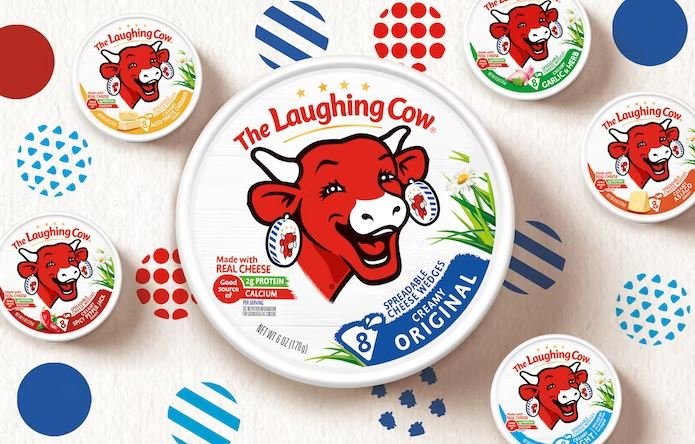Eating cheese can lead to digestive issues if you have certain allergies, medical conditions, or illnesses. Cheese is a key nutrient for healthy bones and teeth because it offers high amounts of protein and calcium, which can benefit your overall health. You probably like cheese and consume much of it, but is cheese easy to digest?
It depends on many factors, like the type of cheese, the amount of cheese consumed, and your digestive system. Cheese might be difficult to digest because it contains lactose if you are lactose intolerant. Aged cheeses like Cheddar or Parmesan contain very little lactose and won’t cause you any discomfort.
Suppose you have sensitivities to lactose, fats, and certain acids used in cheese production. In that case, you can still enjoy cheese by knowing the different types and paying close attention to their digestibility. This will help you moderate your intake to avoid digestive discomfort. Keep reading this article to learn more about cheese and digestion.
Is Cheese Easy To Digest?
Cheese can be hard to digest if you are lactose intolerant or have other sensitivities to dairy products. The high-fat content of cheese can also pose challenges for digestion, especially if you consume a lot of it or have a weakened digestive system. If you are struggling with digestive issues, you may need to limit your cheese intake or choose lower-fat varieties.
Depending on your sensitivities, you may find certain types of cheese easier or harder to digest. Aged cheeses like Cheddar and Parmesan are generally lower in lactose and may be more tolerable. Contrarily, soft and creamy cheeses may be harder to digest because of their higher fat content.
Furthermore, if you are sensitive to the proteins in cheese, you may experience digestive issues like bloating, gas, or diarrhea. You must understand your digestive system and choose cheese types accordingly, considering the fat and protein content, to avoid digestive issues.
Is Cheese Easy On The Stomach?
No. All dairy products are considered hard to digest as they have lactose in them, and your stomach has to work hard to digest this ingredient, which is present in all dairy products. Cheese is easier on the stomach than milk, and among cheese types, aged cheeses such as Parmesan and Cheddar are easier on the stomach than creamy cheese.
Cheese is high in fat, slowing digestion and making it more difficult for your stomach to break down the food. If you have lactose intolerance, cheese can also cause digestive symptoms such as bloating, gas, and diarrhea, as your body cannot properly break down the lactose in the cheese.
The effects of cheese on your stomach can vary, as you have a unique digestive system. You may find that cheese is easy on your stomach, while others may experience digestive discomfort after eating cheese. If you experience digestive problems after eating cheese, consult a healthcare provider to determine the cause and receive treatment.
Does Cheese Take Long To Digest?
It depends on the type of cheese. According to QualityHealth.com, hard cheeses from whole milk can take up to four or five hours to digest. The reason for this extended digestion time is the density of the cheese, which necessitates the production of a significant amount of chemicals by the pancreas to break it down.
While dairy products like yogurt and milk are commonly thought to assist digestion, several types of cheese are high in protein and fat, which can only be digested once they have reached the small intestine after leaving the stomach. This means that the liver, pancreas, and stomach must all expend considerable effort to digest these types of food.
Digestive issues arise from overeating cheese. You may not face many difficulties with a small amount of cheese on its own, but if you add other proteins, problems can occur. For instance, consuming cheeseburgers can devastate your stomach by simultaneously introducing a significant amount of fat and protein, leading to indigestion.
Can Cheese Cause Digestive Problems?
Yes. Although cheese is typically safe for consumption, you may experience difficulty digesting it, resulting in stomach discomfort, bloating, or gas. If you have insufficient lactase, the digestive enzyme needed to break down lactose, a natural sugar found in milk and milk products, you may experience an upset stomach after eating cheese.
This is because your body cannot digest cheese properly. Lactose intolerance may also be caused by poor lactose absorption, which can cause lactose to pass undigested into your colon. If you experience pain or digestive issues after consuming cheese, it may indicate lactose intolerance or food poisoning, which requires immediate medical attention.
To prevent digestive problems, you need to know the cause of your discomfort. If you have lactose intolerance, stick with low-fat cultured cheeses to avoid complications. You may also consider switching to vegan cheeses to completely avoid lactose or choosing hard, aged cheeses like Cheddar, Swiss, and Parmesan, as they are naturally low in lactose.
What Cheese Is Good For The Stomach?
Cottage, feta, ricotta, and parmesan cheese are all good for your stomach. If you’re trying to choose cheese that is easy on your stomach, you should know that some types of cheese are better than others. Some people find high-fat cheeses difficult to digest, while others contain beneficial probiotics that can support digestive health.
Cheeses like gouda and kefir, rich in probiotics, can benefit your digestive health. Although the cheese types mentioned may benefit you, they may not be appropriate for everyone. However, always listen to your body and consume these foods in moderation.
You can enjoy the benefits of these cheeses without overeating them or causing discomfort to your digestive system. Remember that everyone’s body is different, so finding what works best for you and your needs is essential. If you have a sensitive stomach or a specific digestive condition, consulting with a healthcare provider is a good idea.
Which Cheese Is Easiest To Digest?
Goat cheese is the easiest to digest. That’s because it is lower in lactose and contains proteins that may be more easily digested than cheeses made from cow’s milk. Aside from that, factors such as age, health status, and food sensitivities can determine the ease of digestion of cheese.
If you’re looking for cheeses that are easier to digest, you can try soft cheeses like ricotta, cream cheese, and cottage cheese. These cheeses have a high moisture content and mild flavor, making them gentle on your digestive system. The soft texture of these cheeses means they are easier to break down in your digestive tract.
However, some types of cheese are easier to digest than others due to their lower lactose and fat content. If you are lactose intolerant or have difficulty digesting certain foods, know that hard cheeses like Cheddar and Parmesan may be more challenging for you to digest.
Conclusion
Soft cheeses and lower-fat cheeses, such as cottage cheese and mozzarella, are easier to digest, while harder and higher-fat cheeses like Cheddar and Parmesan may be more difficult for you to digest. If you are lactose intolerant or have other digestive conditions, you could find it difficult to digest cheese due to its lactose and fat content.



















